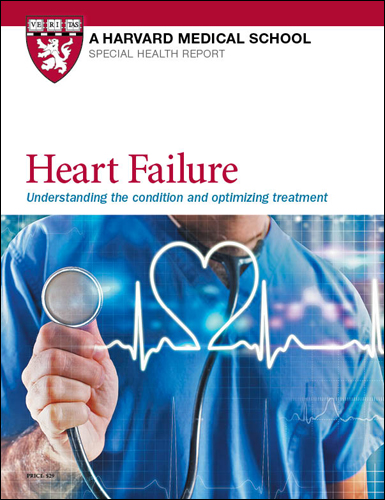Want a healthier heart? Seriously consider skipping the drinks
The World Heart Federation says that even moderate alcohol consumption harms your cardiovascular health.

Red wine actually isn't good for your heart. Really.
For the past 30 years, health experts have touted red wine (in moderation) as a heart-healthy beverage. But a January 2022 policy brief from the World Heart Federation (WHF) aims to set the record straight. No type of alcohol — including wine — is a friend to your heart.
"Alcohol seems to have adverse effects on nearly every form of heart disease," says Dr. JoAnn Manson, the Michael and Lee Bell Professor of Women's Health at Harvard Medical School. It increases the risk of
- hypertension
- heart failure
- stroke
- cardiomyopathy (a disease of the heart muscle)
- aortic aneurysm (a dangerous bulge in the wall of the aorta)
- atrial fibrillation (an irregular heart rhythm).
It may also play a role in coronary artery disease, says Dr. Manson. But the evidence for this is less clear.
"People should clearly understand that alcohol is linked to several heart-related risks," she says. "The message they may have heard that alcohol is good for the heart has been debunked; it's a myth."
Alcohol and your heart by the numbersThe World Heart Federation included some statistics about alcohol and health in its January 2022 policy brief, "The Impact of Alcohol Consumption on Cardiovascular Health: Myths and Measures." Here are some of the highlights:
|
Changing advice
You may wonder, what changed? Why did experts say that alcohol was good for the heart if that's not the case?
One reason for the shift is that researchers now know that there were some procedural flaws in past research, says Dr. Manson. Past studies often compared people who drank alcohol against a mixed group of nondrinkers. Although some of the people in the nondrinking group never drank alcohol, some had stopped drinking because they were recovering from alcohol use disorders and had been heavy drinkers for years before they quit. Others had given up alcohol because of health problems, such as heart disease or diabetes, or because they were taking medications that interacted with alcohol, says Dr. Manson.
"When studies excluded former drinkers and people with underlying health problems, they didn't show the same alcohol-related cardiovascular benefits," says Dr. Manson.
In addition, the WHF noted that much of the past research on alcohol and heart health consisted of observational studies — not the more reliable randomized controlled trials. When randomized trials were conducted, they failed to find a heart benefit from drinking alcohol. Also, some of the most favorable effects of alcohol had been found in studies paid for by the alcohol industry, which raised the potential of bias.
Women at higher risk
Although more men than women die from alcohol-related causes (including accidents and liver disease), women may be more susceptible than men to several health problems caused by alcohol, says Dr. Manson.
"Women metabolize alcohol more slowly than men and, generally, can tolerate only about half as much alcohol as men before experiencing adverse effects," she says.
In addition to raising the risk for heart-related problems and liver disease, alcohol use has also been linked to a higher risk of certain cancers, including those of the mouth, throat, esophagus, and liver. In addition, drinking even small amounts of alcohol can raise the risk of breast cancer, says Dr. Manson.
Alcohol also increases the risk of atrial fibrillation, which is more dangerous in women than in men. "Women are more likely than men to have a stroke if they have atrial fibrillation, and women who have a stroke are more likely to have a fatal stroke," says Dr. Manson.
How to cut back on your drinkingWhile the World Heart Federation says there's no safe amount of alcohol for your heart, moderate use is typically defined as no more than one drink per day for women. One drink equals
A woman is considered a heavy drinker if she has eight or more drinks per week, or a binge drinker if she has more than four drinks in one sitting. If you'd like to cut back on your drinking, the U.S. Substance Abuse and Mental Health Services Administration offers some tips that can help:
|
To drink or not to drink?
With this in mind, it may be time to rethink your drinking habits.
"I don't think that everyone who is drinking, even in moderation, needs to stop drinking urgently," says Dr. Manson. But if you do drink regularly, it might be a good idea to cut back. Also, if you're drinking expressly because you've been told it protects your heart, you should stop.
"I'm often amazed to hear people say, 'I didn't used to drink until I heard it was good for my health, so I try to have at least one drink a day,'" says Dr. Manson.
You should be particularly cautious with alcohol if you have hypertension or other risk factors for heart disease, atrial fibrillation, or heart failure, or if you're at a high risk for cancer. This includes women who have already had breast cancer or who have a strong family history of breast cancer, she says.
It's also time to retire the notion that there is a "safe" type of alcohol, she says.
"People are always interested in whether some types of alcohol are better than others — is red wine or white wine or any wine better than other forms of alcohol?" says Dr. Manson. The answer is that no type of alcohol is good for your heart or your health.
"The difference with wine is that it is often consumed with meals," she says. When you have alcohol with food, your system is likely to absorb it more slowly. You are also more likely to drink in moderation while eating than if you're out at a bar where drinking is the main attraction. "I think there are certain types of alcohol that people might be more likely to consume in excess, which is particularly deleterious," says Dr. Manson.
Image: © RuslanDashinsky/Getty Images
About the Author

Maureen Salamon, Executive Editor, Harvard Women's Health Watch
Disclaimer:
As a service to our readers, Harvard Health Publishing provides access to our library of archived content. Please note the date of last review or update on all articles.
No content on this site, regardless of date, should ever be used as a substitute for direct medical advice from your doctor or other qualified clinician.
















